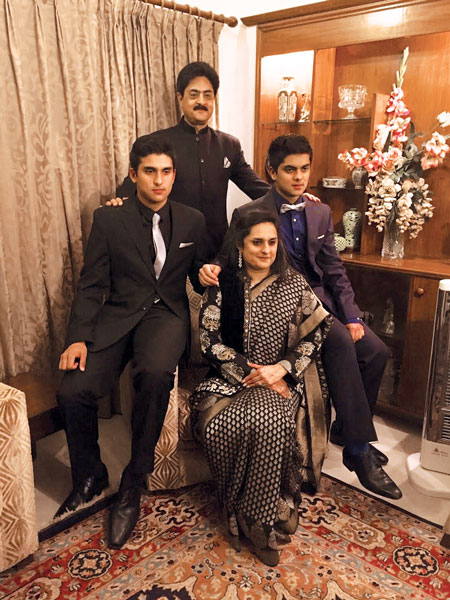Please don’t make anything of it. I only did it out of goodwill,” says Captain Mohan Bir Singh when I call him. He is a bone marrow donor and a member of RC Chandigarh, his donation has helped save the life of a 13-year-old leukaemia patient in Delhi.

“If my act could inspire some more people, I’m happy. I don’t want any recognition,” he says, reluctantly agreeing for the interview. And true to his words, his action has created a ripple-effect as few of his friends and staff have signed up for bone marrow donation.
Four years ago, Singh, a former Army officer, and his wife, Bandana had registered on the bone marrow registry to save a cancer-afflicted relative. “Though people scared us with a variety of misconceptions, we were firm in our decision to go ahead with the donation,” says Singh. But unfortunately, both their cells tested negative for the match and were stored at Gene Bandhu, a Delhi-based NGO that works to find a matched donor for cancer patients in need of bone marrow transplants.
All discomfort vanished when I learnt that my cells matched 100 per cent with that of the child.
Sometime in July, he got a call from the NGO asking if he was willing to donate his marrow for a blood cancer patient in Delhi. “I instantly agreed, but asked if it was okay to do it after returning from my vacation to Goa that was planned, and they agreed. But when
I was relaxing at Goa, I got a call requesting me to begin the process immediately as it was an emergency and I returned to Chandigarh.” The day, August 3, was his birthday, and the process began.
Painful process
He had to take injections thrice a day for five days. He felt uncomfortable, tired and had fever and body ache. On the fifth day, he was admitted to a hospital at Mohali and as the doctors couldn’t extract the marrow from his arms, they had to take it from his groin. The entire procedure lasted for seven hours and the extracted stem cells were frozen and taken to Delhi.
“But all the discomfort vanished when I learnt that my cells matched 100 per cent with that of the child and that she had 90 per cent chances for survival,” recalls Singh who owns a restaurant in Chandigarh.
He adds that it takes quite a while for the body to get back to total normalcy, though one can resume routine chores and work a day after the procedure. The side effects wear off within a week.
He is happy that the child is doing fine. “I had made it clear that I don’t want to know my recipient because then the entire meaning is lost. It’ll be like charity which is not my intention,” he says.
He has shared his gesture on the social media so that others may be encouraged to replicate.
Public awareness on bone marrow donation is yet to gain momentum in our country and there are just about 20,000 donors registered in the two main registries across India. Over the years the procedure has become much simpler and less painful, says Singh.
Will he repeat the act? “Of course, yes!” he says. And the doctors have told him that he can do so after three months.
Singh is a Rotarian for the past 15 years and his father, late Col A B Singh, was also a member of the same club. He loves Rotary “for the selfless work Rotarians do, the time and money they give generously for the underprivileged, and more importantly, for its work in eradicating polio from India, as also for the numerous corrective surgeries.” He and his architect wife Bandana are regular blood donors.





